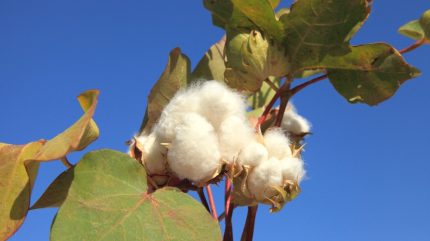
The Cotton Campaign, which is an NGO seeking to end forced labour for cotton workers in Central Asia, believes the issue remains widespread and systematic in Turkmenistan, despite some shifts in the 2023 harvest.
The report, titled ‘Forced Labor in Turkmenistan Cotton: Critical Moment to Increase Pressure for Change,‘ suggested that several weeks into the 2023 harvest the country’s authorities stopped mobilising teachers and doctors or extorting them to pay for replacement pickers.

Discover B2B Marketing That Performs
Combine business intelligence and editorial excellence to reach engaged professionals across 36 leading media platforms.
However, the report claimed forced labour continued for other groups of state employees.
The Cotton Campaign stated it is now critical that governments and international organisations increase political and economic pressure on the Turkmen government to end forced labour and expand the measures taken in the 2023 harvest through deeper changes.
The 2023 harvest was the first time the country’s government had invited the International Labor Organisation (ILO) to monitor the harvest.
The ILO Mission has not yet published its complete findings, however Cotton Campaign said the 2024 report of the ILO Committee of Experts on the Application of Conventions and Recommendations noted ILO’s preliminary findings indicated direct or indirect evidence of mobilisation of public servants in all regions visited.

US Tariffs are shifting - will you react or anticipate?
Don’t let policy changes catch you off guard. Stay proactive with real-time data and expert analysis.
By GlobalDataThe Cotton Campaign pointed out the ILO’s presence in the country may have played a role in the Turkmen government’s decision to stop mobilising teachers and doctors or extorting them to pay for a replacement picker.
It revealed children were not mobilised by public authorities, but child labour was used in the harvest, which the ILO Mission also recorded in its preliminary monitoring findings, with children often picking cotton to earn money as replacement pickers or to replace a relative who was required to pick.
However, it pointed out the government did not hold officials who used forced labour accountable or provide remedy to victims.
The legal director at Global Labour Justice, which hosts the Cotton Campaign, Allison Gill explained: “It took a decade of independent monitoring and reporting, advocacy, and campaigning for Turkmenistan to take some steps to reduce forced labour in its cotton harvest.”
She continued: “It is still unclear if Turkmenistan has the necessary political will to eradicate forced labour, and international stakeholders shouldn’t take their foot off the gas. Now is the time to increase the pressure and call for meaningful reforms to end forced labour that address root causes and emphasise fundamental rights, especially freedom of association, freedom of expression and collective bargaining rights.”
The NGO highlighted that Turkmenistan also relies on the exploitation of cotton farmers as every year, the government allegedly imposes cotton production quotas on them and enforces them with the threat of penalty, including fines and loss of land.
It stated: “The state sets the price at which it will purchase cotton from farmers and determines the cost of production.”
Turkmen Initiative for Human Rights chairperson Farid Tukhbatullin added: “With the state-set purchasing price for cotton, farmers can barely cover their expenses, often ending up in debt.
“It’s a vicious circle of exploitation. To be able to pay the state for the inputs they receive, farmers need to sell their livestock or find another way to pay, with equally dire consequences on their livelihoods. Otherwise they accumulate more debt every year. The Turkmen government should introduce structural reforms to address forced labor, exploitation, and corruption in all aspects of the agricultural sector.”
Cotton Campaign senior coordinator Raluca Dumitrescu believes global brands and retailers should prohibit the use of cotton from Turkmenistan in their products and engage their direct suppliers as well as the spinning and fabric mills in their supply chains to meet this requirement.
She added: “We encourage the brands who already do this to be public about it and join the Cotton Campaign in our efforts to signal to the government of Turkmenistan that the use of forced labor is unacceptable.”
Director of independent media and human rights organisation Turkmen.News, Ruslan Myatiev is confident reform is possible and the government has the power to eradicate forced labour. He said: “Now is the time to expand the measures the government took in the 2023 harvest through deeper, concrete, and transparent policy changes to end forced labour and stop punishing activists who speak out about abuses in the cotton sector.”
The Ministry of Textile Industry of Turkmenistan had not responded to Just Style’s request for comment at the time of going to press.
In June 2023 the Cotton Campaign urged businesses to end all investments in Turkmenistan amid forced labour concerns.





